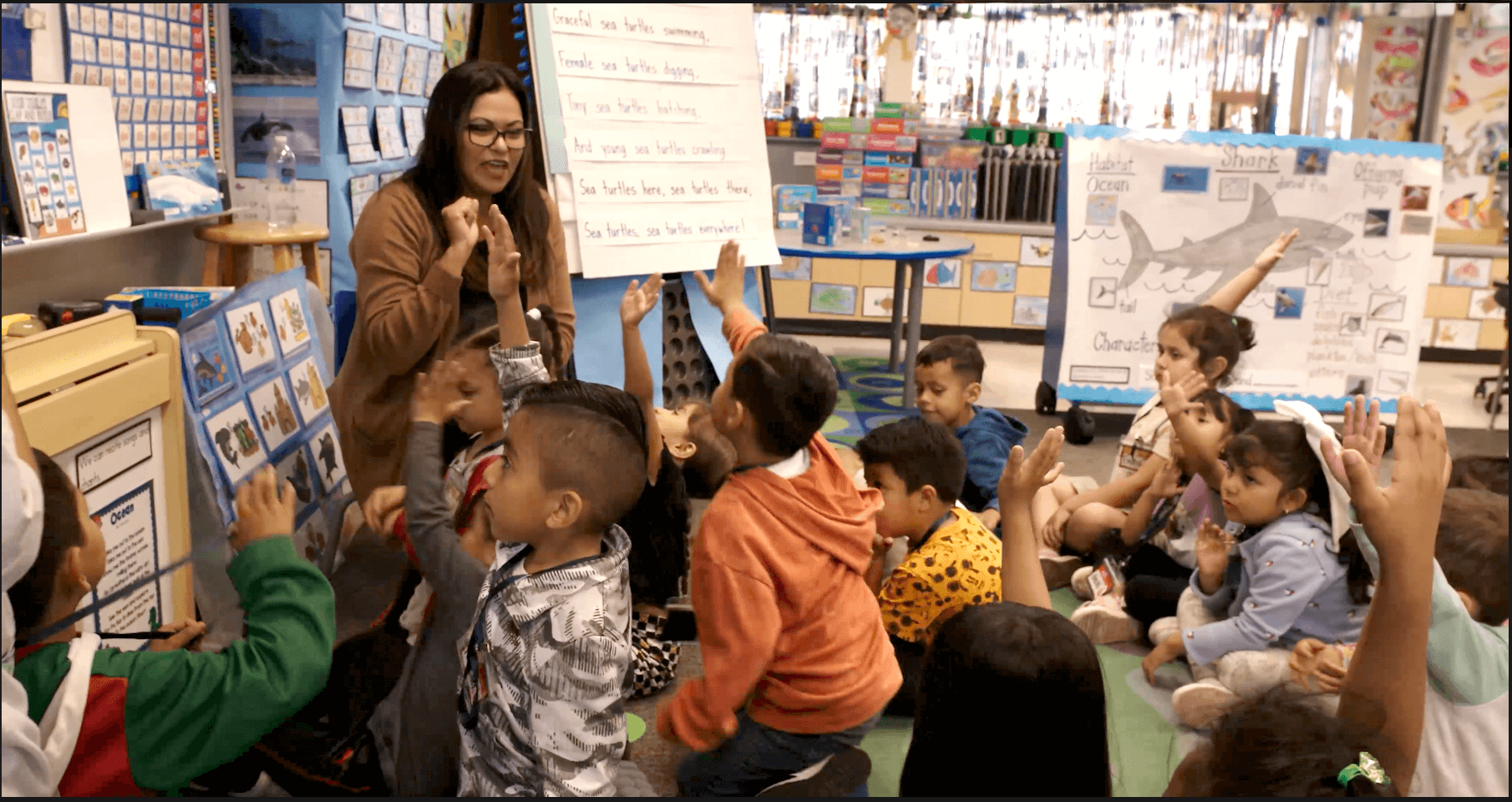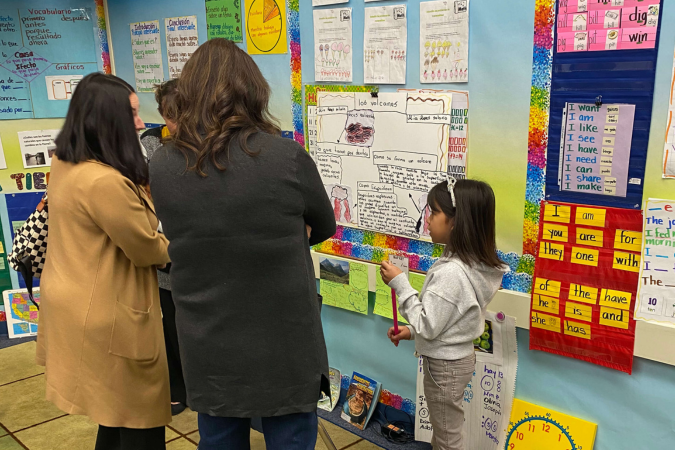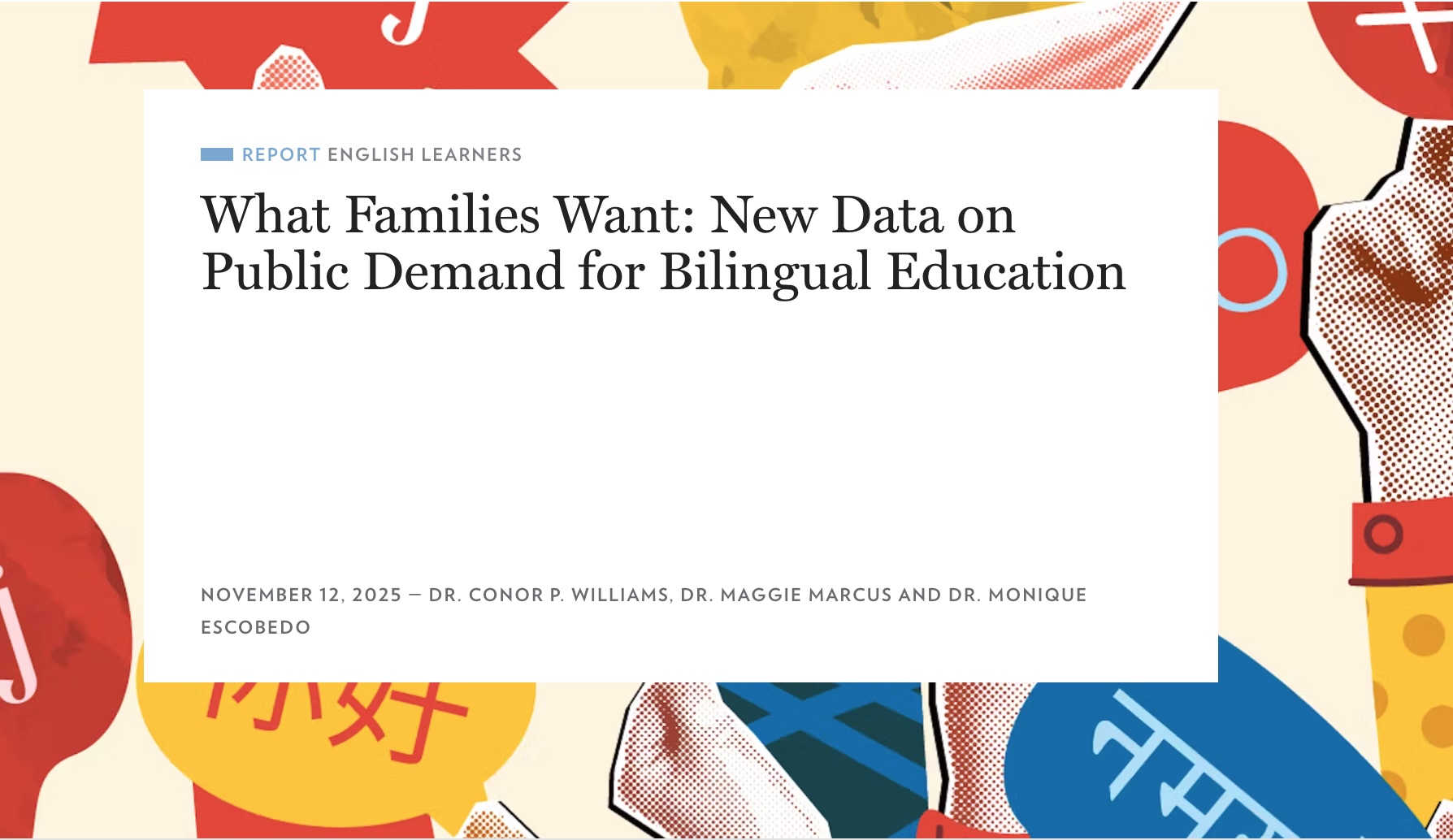
Celebrating Women Who Empower the Future of Multilingual Education
At SEAL, we believe in the positive impact of multilingualism on student success. This March, we’re excited to celebrate women whose experiences with bilingualism have enriched their lives and contributed to a brighter future for multilingual learners.
Elevating Leadership and Multilingualism in Action
We are proud to highlight the stories of three inspiring women, who are also valued supporters of SEAL. Their journeys showcase how bilingual and bicultural experiences have shaped their personal and professional success in diverse fields. Through their voices, we honor the power of multilingualism to build bridges, foster connection, and empower future leaders.
Raising Bilingual Children: Julie's Story
Julie Castro Abrams, CEO, How Women Lead, SEAL Board Member
As someone who’s navigated raising bilingual children in environments that didn’t always see their bilingualism as an asset, Julie shared a story close to her heart.
In college, she remembered hearing from professors that children who spoke two or more languages at home would experience slower language development. That outdated idea—long debunked—contradicted everything she had witnessed first hand. .
Her kids thrived. They became fluent in both English and Spanish faster than many of their monolingual peers mastered just one. Yet, even with this success, they found themselves in school environments, where their bilingualism wasn’t celebrated or understood.
Julie has seen firsthand how being bilingual shaped her children’s futures. It has enriched their lives, strengthened their careers, and deepened their connections to diverse communities and cultures. And it’s not just her family — research confirms that multilingualism fosters empathy, cognitive growth, and creativity.
Embracing Multilingualism: Feliza's Journey
Feliza Ortiz-Licon, Executive VP at The Campaign for College Opportunity, SEAL Board Member
Growing up multilingual in West Long Beach in the ‘70s and ‘80s, Feliza often felt the tension between her rich cultural heritage and societal norms that didn’t always see her bilingualism as a strength.
At home, her parents immersed the family in their Mexican culture. But outside, the narrative was different.
In school, being pulled out of class for Spanish instruction or struggling with grade-level reading sent mixed signals. Instead of being seen as an asset, her bilingualism was treated as something to overcome.
It wasn’t until later that Feliza began to see her multilingualism as a superpower—a bridge that connected her identity to academic and professional success. She decoded spelling tests in Spanish, navigated the world through her cultural lens, and found pride in her family’s commitment to preserving their language and traditions for generations.
Her story is a testament to the power of multiculturalism - not just as a skill but as a source of strength, resilience and belonging.
Embracing Identity: Christina’s Journey to Celebrating Multilingualism
Christina Bui, Manager Director, Robert Half Executive Search
When Christina arrived in the U.S. in 1975 after the fall of Saigon, she was a young immigrant from Vietnam, fluent in Vietnamese and French - but she didn’t speak English.
She vividly remembers the sting of being mocked for her accent, language, and culture as one of the few Asian students in her school. Over time, she felt ashamed of her multilingualism and did everything she could to hide it.
But her parents saw things differently. They encouraged her to embrace her identity, founding a Vietnamese dance troupe, where she and others proudly wore traditional costumes and celebrated their heritage.
Later, as a student at the University of Virginia, Christina took that celebration even further - launching cultural festivals to showcase the richness of international traditions. It was through these experiences that she she came to a powerful realization:
Multilingualism and multiculturalism are not barriers—they are incredible assets!
Her journey is a testament to the power of embracing identity, honoring heritage and recognizing that language is a bridge - not a limitation.
Staff Spotlight: Honoring Language and Culture with Judith
As we celebrate Women’s History Month and SEAL’s 5th Anniversary, we’re highlighting stories of educators who champion home language and culture. One such story is Judith’s — an Associate Director at SEAL whose journey reflects a lifelong commitment to bilingual education and multilingual identity.
Judith’s very first week at SEAL was a fitting welcome - she stepped straight into a dual language convening. As a former bilingual educator and administrator, she immediately felt at home.
“The moment I walked in, it felt like a personal and warm environment,” she said. “You could tell people knew each other and were taking care of each other. I had the feeling of yes, this is where I am meant to be.”
But what resonated most wasn’t just the welcoming atmosphere — it was the way the SEAL spoke about bilingualism. Not just as a practice but as an identity.
"Living as a bilingual individual is a key part of who I am as a practitioner," she explained. "I think and live in two languages and cultures. Fostering environments both on and off campus where children and adults can embrace their bilingual identity and show up as their true selves has always been important to me."
From Exclusion to Empowerment
Judith’s passion for bilingual education is deeply personal. As a child, she was told by school officials not to speak Spanish. It wasn’t just a rule - it was a message that who she was didn’t belong. She felt like she had to leave part of herself outside of the classroom.
That experience stayed with her, driving her life long mission to ensure today’s students and their families never feel the same exclusion.
Judith became a bilingual teacher and later a principal, working to expand dual language opportunities - even when California public schools banned bilingual education. For almost two decades she and school teams from multiple districts built programs and a community, giving families the opportunity to reclaim and preserve their heritage language.
“Families would share language stories from four generations ago — stories of losing their language,” Judith said. “It’s healing when you’re able to do that."
Finding SEAL: A Community of Advocates
Then came the pandemic. Priorities shifted overnight. English learners — already among the most underserved students — were at even greater risk of being left behind. So when Judith saw an invitation to attend a webinar series on English Learners and dual language programs, she felt a sense of relief.
“It felt refreshing and affirming to know that not only schools and districts were thinking about how to address the particular learning goals of English Learners and students in dual language programs,” she said. “We were all doing the best we could with our circumstances, and providing what we had the ability to. It was refreshing to see that we had partners outside of our schools advocating for our students and families.”
That’s when she found SEAL. And soon after, Judith joined the team.
“SEAL works collaboratively with teachers and administrators, reminding them that their professional and personal contributions are valuable and that they matter," she said. "How you show up for others on campus—your mindset, resources, and the way things are framed—are all part of the culture and policies you create in your specific context. We engage with school partners in this important work, and it's incredibly rewarding to be part of it at SEAL.”
Leading the Next Generation of Bilingual Teachers
Now, as Associate Director at SEAL, Judith is leading a state grant-funded bilingual teacher development program through SEAL in partnership with Azusa Unified School District. She's continuing the work she started as a principal — helping more bilingual teachers enter the field and serve their communities.
For students, educators, and administrators who have ever felt like they don’t belong, Judith offers these words:
“I know you feel different. That the way you speak, experience the world, and even think can be confusing. So, you have been told to hide this other part of who you are. But you are not confused, they are. I promise you that you will learn that because you not only speak two languages but also actively live and love in both, you have a superpower. In fact, you are abundant, without needs. How lucky you are to be you.”
“Se que te sientes diferente, que la forma en la que te expresas, piensas e incluso experimentas el mundo, puede ser un poco confusa. Y por eso te han dicho que ocultes esta otra parte, que también representa lo que eres. Pero tú no estás confundida ellos lo están. Te prometo que aprenderás lo valiosa que eres al no solo hablar dos idiomas, sino al vivir y amar en ellos, ese es tu súper poder. Eres muy afortunada de poder ser tu misma.”
Join Us in Building a Multilingual Future
To learn more about SEAL and our impact, read our annual report. For the latest news and updates in support of multilingual learners, subscribe to our newsletter and follow us on Youtube, LinkedIn, Facebook, and Instagram.
Read More News from SEAL

Learn about changes in policy, up-to-date research, and unique practices to support Dual Language and Multilingual Learners. And don’t forget to sign up for our newsletter here.
%201.svg)


